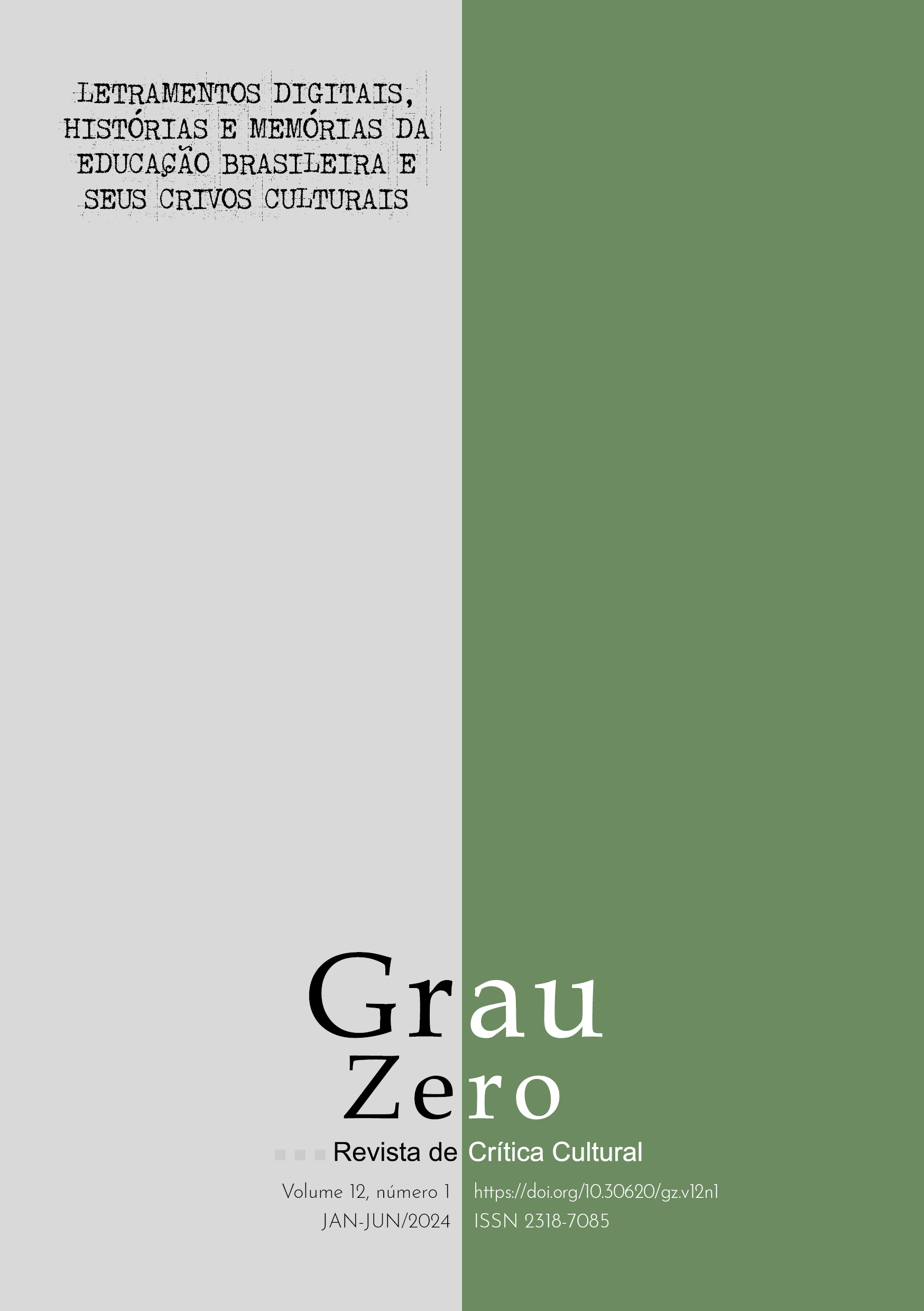Literary reading
from printed to digital
DOI:
https://doi.org/10.30620/gz.v12n1.p59Keywords:
Printed Reading, Digital Reading, LiteratureAbstract
This article explores the evolution of literary reading from printed to digital format, investigating how this transition impacts the reader’s interaction with literary works. The perceptual and cognitive changes resulting from reading on digital platforms are analyzed, highlighting the influence of technologies on the reader’s experience. It also examines the democratization of access to literature, the introduction of multimedia elements and new forms of social interaction in virtual communities of readers. By confronting the challenges and opportunities of this transformation, this study aims to understand the implications of digital reading in the contemporary literary context, considering the nuances that define the transition from printed to digital reading. To support this discussion, it is based on theorists and scholars such as Bordini and Aguiar (1988), Chartier (2003), Cavallo (2002), Canclini (2008), Coscarelli (2012), Cruz (2012), among others. Therefore, this analysis not only understands technological transformations, but reflects on how these changes affect the essence of literary reading in the educational environment, exploring not only the past and present, but also the future of this constantly evolving scenario.
Downloads
References
AGUIAR, V.T. de; B., M. da G. Literatura: a formação do leitor – alternativas metodológicas. Porto Alegre: Mercado Aberto, 1988.
CANCLINI, Néstor García. Leitores, espectadores e internautas. Trad. Ana Goldberger. São Paulo: Iluminuras, 2008.
CANDIDO, Antonio. O direito à literatura. In: Vários Escritos. 5 ed. Rio de Janeiro: Ouro Sobre Azul/ São Paulo: Duas Cidades, 2011.
CAVALLO, G. Entre volumen e codex: A leitura no mundo romano. In: CAVALLO G. & CHARTIER, R (orgs). História da leitura no mundo ocidental. Trad. Fulvia M. L. Moretto; Guacira M. Machado e José Antonio de M. Soares. Vol. 1. São Paulo: Ática, 2002.
CHARTIER, Roger. Os livros resistirão às tecnologias digitais. NOVA ESCOLA. Edição 204, 01 de agosto, 2007. Disponível em: https://novaescola.org.br/conteudo/938/roger-chartier-os-livros-resistirao-as-tecnologias-digitais. Acessado em: 17 de abril de 2023.
COSCARELLI, Carla Viana. Tecnologias para aprender [recurso eletrônico]. 1. ed. São Paulo: Parábola, 2020. Recurso digital (Linguagens e tecnologias – 3). Edição do Kindle.
CRUZ, M. F. B. Leitura literária na escola: desafios e perspectivas de um leitor. Salvador: EDUNEB, 2012.
CRUZ, Maria de Fátima Berenice da. Educação literária e desafios digitais: dilemas da BNCC. In: Fórum linguístico/ Programa de Pós-graduação em Linguística. Universidade Federal de Santa Catarina. v. 18, n. 2 (2021) Florianópolis: Universidade Federal de Santa Catarina, Pós-graduação em Linguística, 2019, p. 345-358.
FREIRE, Paulo. Pedagogia da Autonomia: Saberes necessários à prática educativa. São Paulo: Paz e Terra. Coleção Leitura. 1996.
FREITAS, M. T. Leitura, escrita e literatura em tempos de internet. In: PAIVA, A. et al. (Orgs.). Literatura e Letramento: espaços, suportes e interfaces – o jogo do livro. Belo Horizonte: Autêntica, 2005. p. 155-173.
Published
How to Cite
Issue
Section
License
Copyright (c) 2024 Grau Zero – Revista de Crítica Cultural

This work is licensed under a Creative Commons Attribution-ShareAlike 4.0 International License.
Autores que publicam nesta revista concordam com o seguinte termo de compromisso:
Assumindo a criação original do texto proposto, declaro conceder à Grau Zero o direito de primeira publicação, licenciando-o sob a Creative Commons Attribution License, e permitindo sua reprodução em indexadores de conteúdo, bibliotecas virtuais e similares. Em contrapartida, disponho de autorização da revista para assumir contratos adicionais para distribuição não-exclusiva da versão do trabalho publicada, bem como permissão para publicar e distribuí-lo em repositórios ou páginas pessoais após o processo editorial, aumentando, com isso, seu impacto e citação.


















